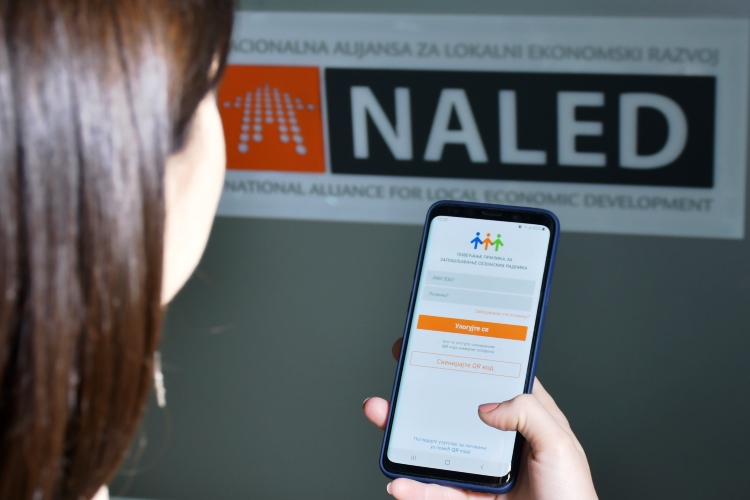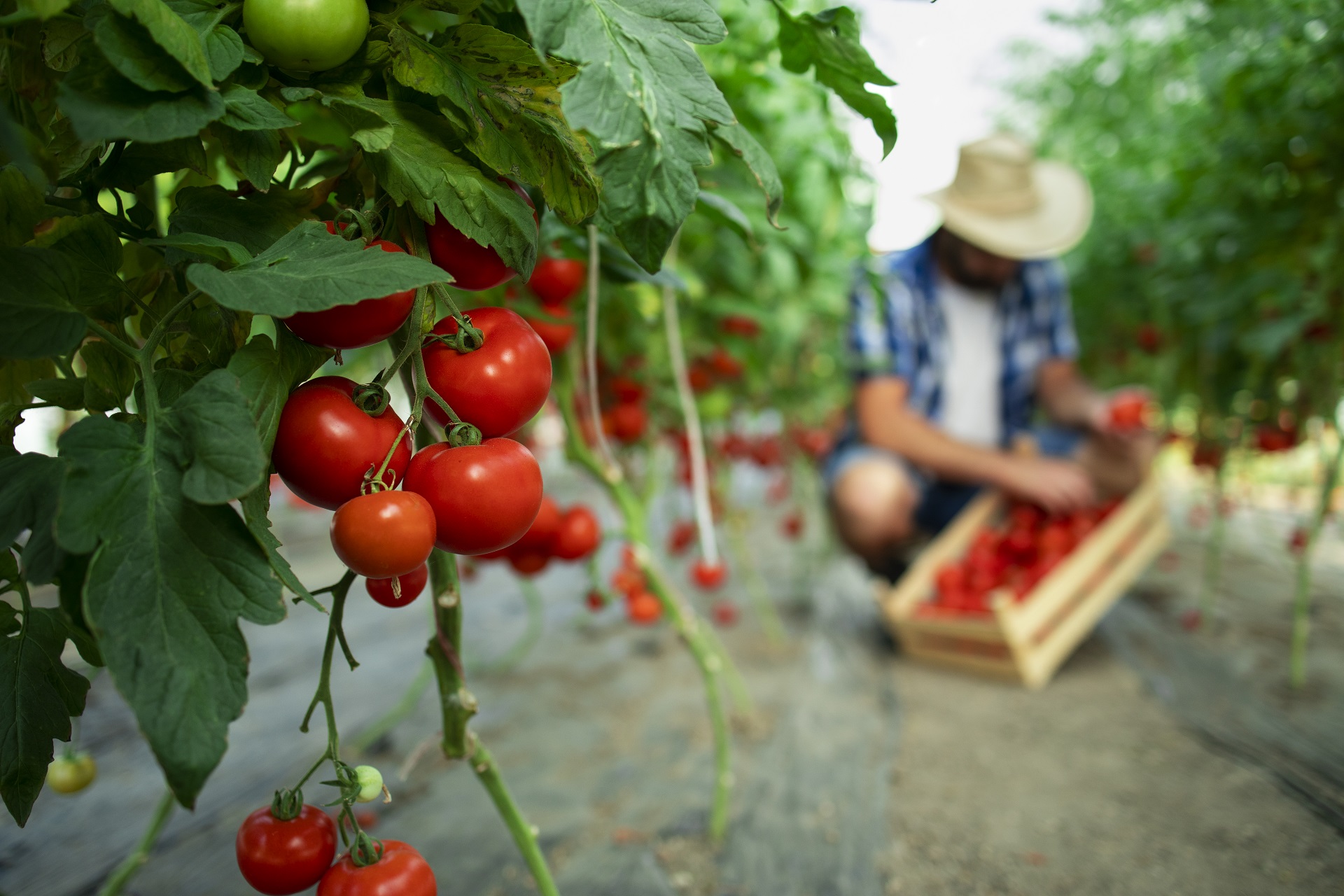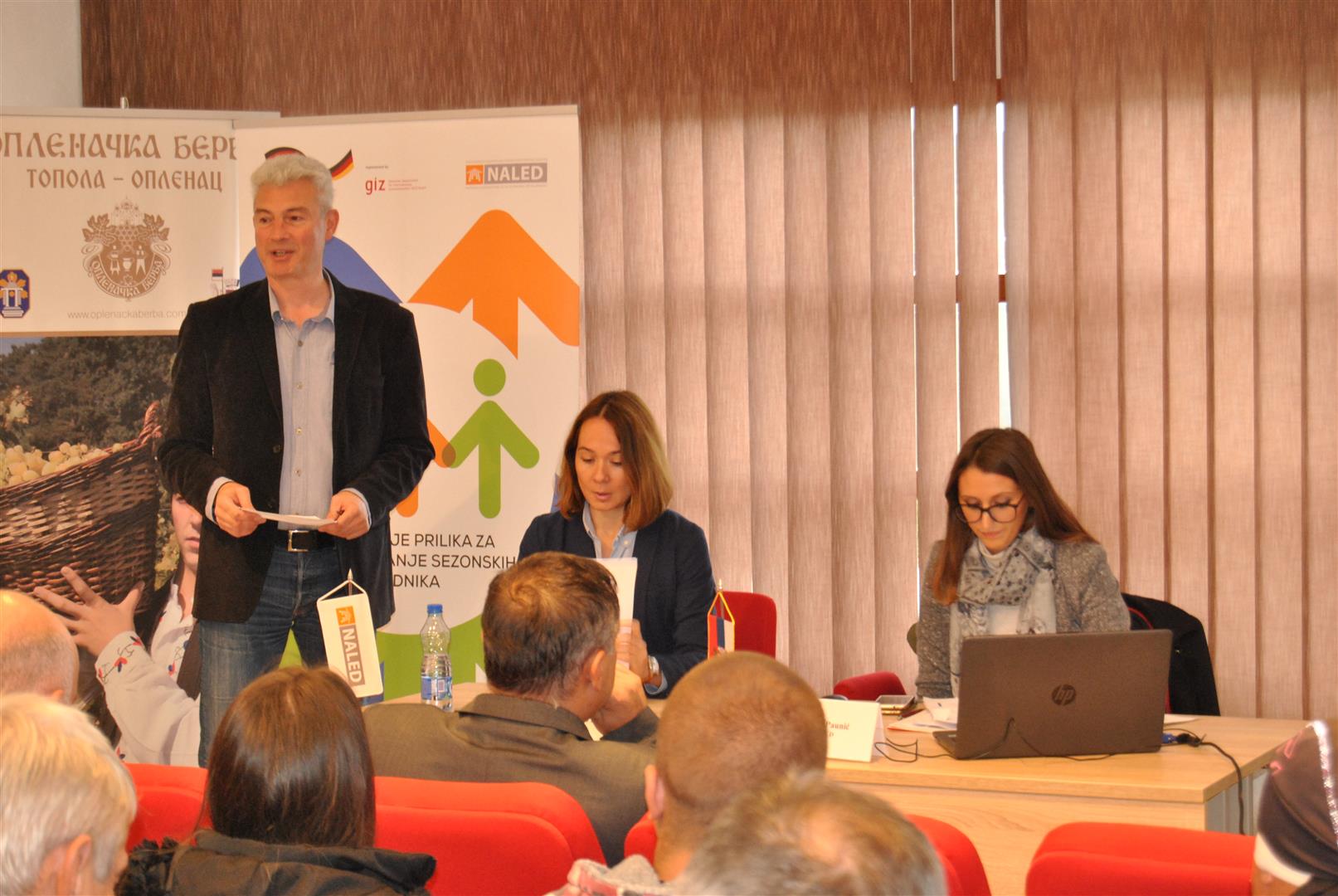Three years of the reform of seasonal work engagement in agriculture
Since the beginning of 2019, nearly 60,000 seasonal workers in agriculture have been recorded in the electronic system for simplified registration. For the days they were engaged, along with financial compensation, they exercised the right to pension insurance and insurance in case of injury at work, as well as the right to maintain the social benefits they receive – all the things they most commonly lacked before the Law on Simplified Engagement on Seasonal Jobs in Selected Industries.
NALED's analysis of the first three years of reform in this area shows that the number of registered seasonal workers is growing from year to year. There were 28,407 workers registered in 2019, 32,906 in 2020, and 38,501 workers last year, which is 48% of all seasonal workers, as estimated by official statistics in Serbia. When compared to 2018, when just over 3,500 workers (around 5%) had a contract, it is evident that the new procedure helped suppress undeclared work in this area.
- The success of the reform lies in efficiency, because the procedure of signing contracts on paper and going to the counters of institutions was replaced by registration via web portal www.sezonskiradnici.gov.rs or mobile application in just a few minutes. In addition to making it easier for employers, this law also helped workers a lot because it gave them greater rights than they have under the contract on temporary and occasional jobs. This is primarily the retention of the right to social benefits or family pension, and given that many seasonal workers are using these benefits, they themselves asked not to be registered so as not to lose them - says the head of the Unit for Agriculture and Health in NALED, Jelena Radnović Vukčević.
The reform of seasonal work engagement was carried out by the Government of Serbia and the ministries of labor and agriculture, in cooperation with NALED and with the support of the German Development Cooperation implemented by GIZ Open Regional Fund for Modernization of Municipal Services in Southeast Europe. The initiative came from fruit companies from Srem and then-mayor of Sremska Mitrovica, Branislav Nedimovic, who turned to NALED because of a procedure that made it difficult to comply with regulations and imposed unnecessary costs.
According to Radnović Vukčević, NALED and GIZ Open Regional Fund are still working together with the Government of Serbia to promote the benefits of the system among employers and seasonal workers, and in the first half of 2022 round tables are planned in several regions of Serbia, Montenegro and Albania who want to implement this reform in their countries.
The analysis of data from the portal www.sezonenskiradnici.gov.rs shows that 583 employers used the electronic registration of seasonal workers, mostly from the territory of Novi Sad, Sombor and Subotica. For the workers they hired, they paid 895 million dinars into the budget in the name of taxes and contributions.
Although the impression is that seasonal jobs in agriculture are mostly done by older citizens, the results show a different picture. One third of the workers, i.e. 19,890, were young people between 18 and 30 years old, followed by workers between 46 and 60 years old (26%) and people between 31 and 45 years old (22%).
Employers hire seasonal workers throughout the year, and mostly in the period June - September, when the needs for work are higher. Demand is highest in the final phase, i.e. for cleaning, peeling, sorting, packaging and storage of products (617,000 engagements). This is followed by apple picking (482,000) and land preparation, planting, sowing and harvesting (317,000).
Guided by the success of this reform, NALED proposed its extension to low-skilled jobs in construction, catering and tourism, and jobs involving help at home, where there are also large numbers of unregistered workers due to the occasional nature and specificity of the jobs they perform.
Support for the expansion of simplified engagement and further improvement of the electronic system for registration of seasonal workers in agriculture was also provided by the British Embassy through the Counter Gray project.



